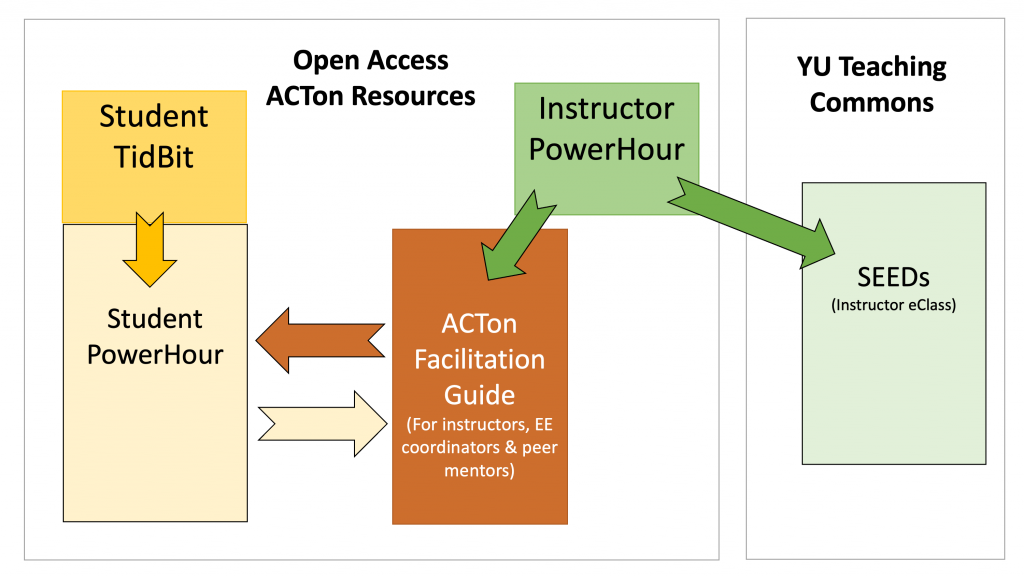Introduction to ACTon
Reading time: approximately 2.5 minutes.
Background on ACTon
Placements are common in higher education programs. They typically occur outside of the classroom environment—often off campus—and are often conducted in collaboration with a partnered placement institution. They may take the form of a clinical placement, practicum, or apprenticeship. In addition to providing professional experience in “real-life” work environments, placements can offer excellent opportunities for disabled students to explore their accommodation needs outside the classroom. Most higher education institutions have policies in place that are intended to support disabled students as they access their right to accommodations. Placement instructors (i.e., course directors, faculty) and placement supervisors (i.e., preceptors, teacher mentors) play a central role in supporting students as they learn what accommodations will work best for them in new placement environments and contexts.
The ACTon project was funded by a York University Academic Innovation Fund. Using participatory visual methods, the project engaged both disabled students and placement instructors in order to learn about the challenges they encountered when communicating about accommodations in placement. The two interactive videos and supplementary materials presented here are intended to increase awareness of the rights of disabled students and to decrease barriers to disabled students’ success in placement and experiential-education programs.
ACTon Resource Hub
The ACTon hub houses four resources: two for students (Student PowerHour and Student TidBit), a third for instructors and faculty (Instructor PowerHour), and a fourth for anyone interested in facilitating the student workshop (ACTon Facilitation Guide). There is also a more in-depth course (SEEDs) available for York University faculty and staff through the University Teaching Commons. These resources were designed to work together and be cumulative in their learning objectives. Students who complete the TidBit will be prompted towards the Student PowerHour course, and instructors who complete the Instructor PowerHour will be prompted towards the SEEDS course. All users are encouraged to think about incorporating the principles of inclusion and disability access by consulting the Facilitation Guide. Thus, users can engage with one or multiple resources, as they see fit.


